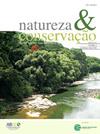Ensuring the quality of historical data for wildlife conservation: A methodological framework
IF 4
2区 环境科学与生态学
Q1 BIODIVERSITY CONSERVATION
引用次数: 0
Abstract
Written historical sources are crucial for understanding wildlife species’ environmental requirements, spatial and temporal dynamics, and guiding conservation strategies. Such records include accounts from a diverse array of sources, including explorers, settlers, missionaries, naturalists, hunters, and military parties, along with manuscripts and gazettes. However, such data is affected by inherent gaps, biases, and limitations. Here we examine the weaknesses of such data that can lead to distorted interpretations of long-term changes in species distributions and their ecological requirements. Despite this awareness, efforts to document these weaknesses are limited. To prevent incorrect conclusions and misunderstandings, it is essential to critically assess and quantify the quality of the data before utilizing it. To bridge this gap and maximize utility, we present a seven-step process for data evaluation and use.

确保野生动物保护历史数据的质量:一个方法论框架
书面历史资料对于了解野生动物物种的环境需求、时空动态和指导保护策略至关重要。这些记录包括来自各种来源的描述,包括探险家、定居者、传教士、博物学家、猎人和军方,以及手稿和公报。然而,这些数据受到固有差距、偏差和局限性的影响。在这里,我们研究了这些数据的弱点,这些弱点可能导致对物种分布及其生态需求的长期变化的扭曲解释。尽管意识到了这一点,但记录这些弱点的努力是有限的。为了防止不正确的结论和误解,在使用数据之前对数据的质量进行批判性评估和量化是至关重要的。为了弥合这一差距并最大限度地发挥效用,我们提出了数据评估和使用的七步流程。
本文章由计算机程序翻译,如有差异,请以英文原文为准。
求助全文
约1分钟内获得全文
求助全文
来源期刊

Perspectives in Ecology and Conservation
Environmental Science-Nature and Landscape Conservation
CiteScore
7.80
自引率
4.30%
发文量
46
审稿时长
59 days
期刊介绍:
Perspectives in Ecology and Conservation (PECON) is a scientific journal devoted to improving theoretical and conceptual aspects of conservation science. It has the main purpose of communicating new research and advances to different actors of society, including researchers, conservationists, practitioners, and policymakers. Perspectives in Ecology and Conservation publishes original papers on biodiversity conservation and restoration, on the main drivers affecting native ecosystems, and on nature’s benefits to people and human wellbeing. This scope includes studies on biodiversity patterns, the effects of habitat loss, fragmentation, biological invasion and climate change on biodiversity, conservation genetics, spatial conservation planning, ecosystem management, ecosystem services, sustainability and resilience of socio-ecological systems, conservation policy, among others.
 求助内容:
求助内容: 应助结果提醒方式:
应助结果提醒方式:


